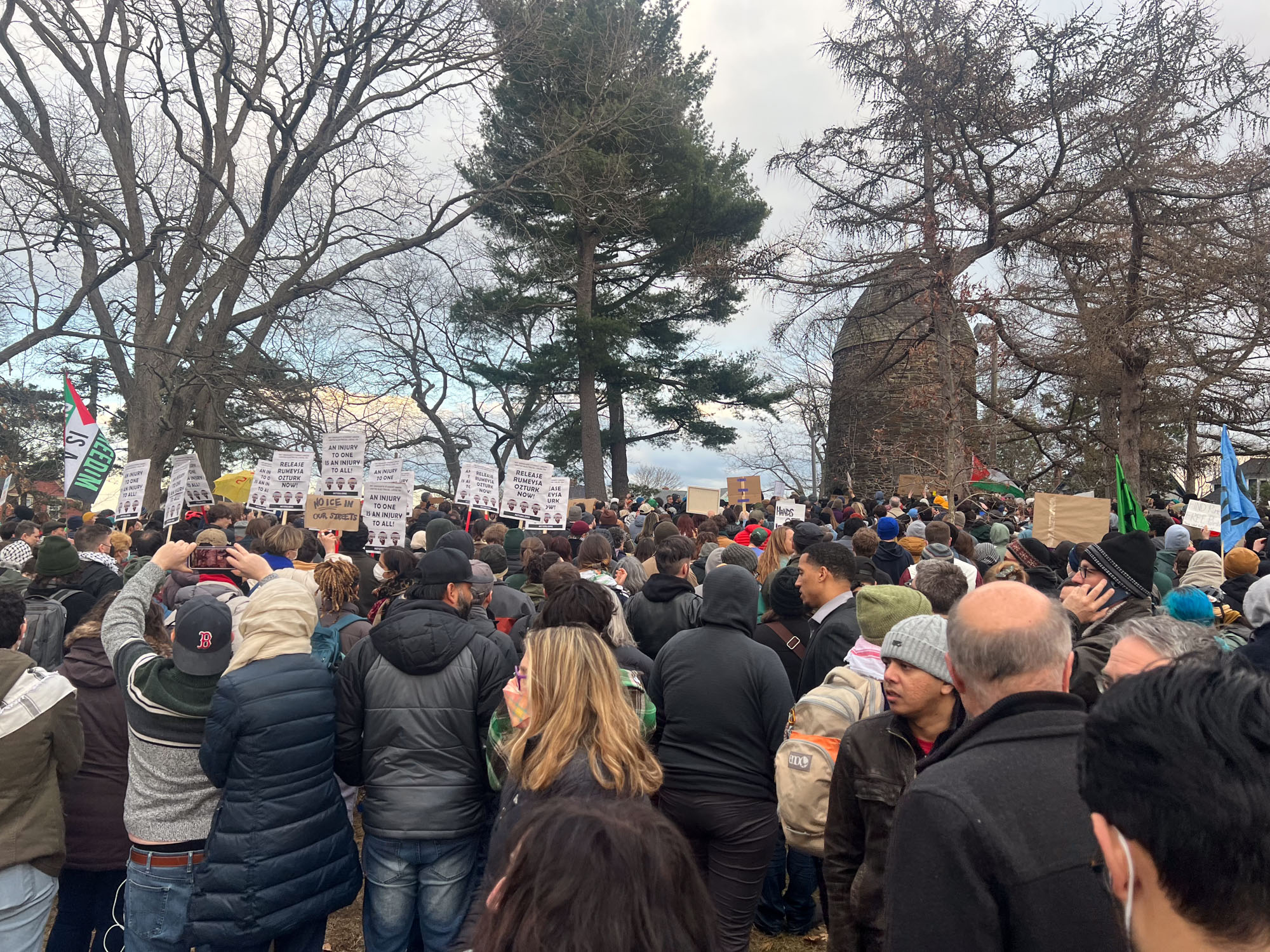Legal and academic associations representing university professors sued the Trump administration March 25 for detaining students who have engaged in pro-Palestinian protests or sentiment.
The plaintiffs include the American Association of University Professors and its campus chapters at Harvard University, New York University and Rutgers University, alongside the Middle Eastern Studies Association, a non-profit association dedicated to scholarship in the Middle East.

Both groups are represented by the Knight First Amendment Institute at Columbia University, a legal group focused on litigation concerning freedom of speech.
The plaintiff argued the Trump administration violated the First and Fifth Amendments by suppressing speech and failing to clarify grounds for arrests, and urged the court to block student protest-related arrests or deportations.
Kirsten Weld, president of the Harvard AAUP chapter, said these past Trump administration arrests violate the “principle of academic freedom.”
“You cannot have academic freedom when non-citizens are afraid to speak their minds [and] to participate publicly in the work of research and teaching for fear of deportation,” Weld said.
In the lawsuit, the plaintiff labeled the practice as an “ideological-deportation policy,” highlighting the intellectual impact on university students and professors.
Weld said the lawsuit is as much about the “right to hear” as the right to speak.
“All of us on campus are deprived of our First Amendment right to hear and receive the opinions and contributions and input of our non-citizen peers and colleagues,” Weld said. “Their speech is being chilled by this ideological-deportation policy.”
The lawsuit cites numerous instances of professors and students refraining from engaging in discussions or activities related to Palestine for fear of being arrested or deported.
While the Trump administration claims the arrests and deportations are a matter of national security, the plaintiffs argue these actions are an attempt to silence “political viewpoints that the government disfavors,” according to the lawsuit.
Jackson Busch, a legal fellow at the Knight Institute and a lawyer representing the plaintiff, said the Trump administration’s policy could potentially send the U.S. down a slippery slope of suppression.
“This lawsuit is about pro-Palestinian speech, but repression of one type of speech that the government doesn’t like usually doesn’t end there,” Busch said. “[That’s] something that the First Amendment was meant to guard against.”
Jonathan Feingold, an associate professor at Boston University School of Law, said although he hoped the lawsuit would be successful, universities “should not be putting [their] faith in the courts.”
Rather, Feingold said they should be “engaging in mutual aid” and “leading the charge” against the Trump administration themselves.
Feingold said he has seen a “strategy” from universities, hoping that if they stay quiet, they “won’t be singled out.”
“That is really a fool’s errand,” he said. “The Trump administration will go one-by-one ticking off universities, so maybe a university that today is quiet is going to have another 12 or six months before it is directly targeted.”
Feingold said universities are being targeted as they are a “natural check on authoritarian regimes.”
“The goal is for the Trump administration to determine what happens in universities, which is inimical to what universities are supposed to stand for,” he said. “Everything that the Trump administration is doing is designed to make it harder for universities to carry out that most basic function.”
The AAUP is currently pursuing several other legal actions against the Trump administration, including lawsuits filed over the dismantling of the Department of Education and its withholding of funding from Columbia.
Busch said the Knight Institute can not make a prediction on the outcome of the lawsuit.
Rotua Lumbantobing, the vice president of the AAUP, said she was “hopeful that the law will prevail.”
“Everything that the Trump administration has been doing right now is against law. It’s illegal,” Lumbantobing said. “We stand ready to fight back and stand ready with faculty and students and the public … to defend freedom of speech [and] academic freedom.”


















































































































